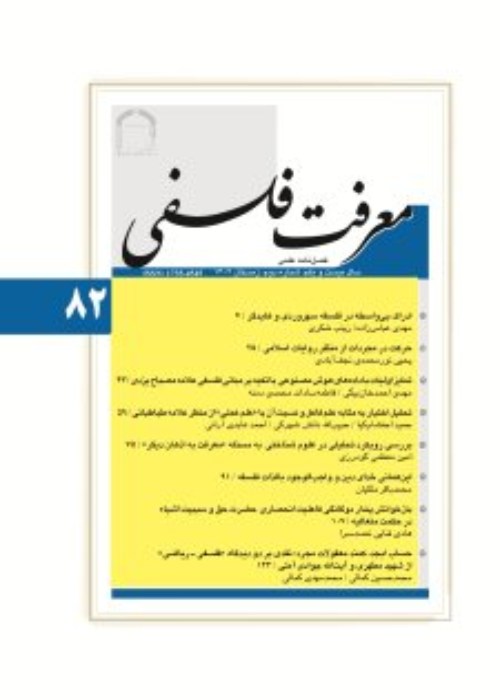Value and Value Statements In Muḥaqiq Khurāsāni
Author(s):
Abstract:
An analysis of “good and bad” and “value statements” is an important issue in analytic ethics (meta-ethics) as one of the most disputed branches of philosophy of ethics. Although such issues in their current form are new to the field, their roots can be found in the history of ideas in different disciplines. In the history of Islamic thought, one can trace such issues in a variety of disciplines such as ethics, principles of jurisprudence (uṣūl al-fiqh), philosophy, and theology.Muḥaqiq Khurāsāni (Ākhūnd), a prominent figure in uṣūl, has analyzed this issue and came up with a theory that is regarded by many as an innovation without any precedent. According to him, “good” and “bad” means “sympathy and antipathy to the faculty of reasoning”. This article is an attempt to present, analyze, and evaluate this theory, while differentiating three domains of semantics, ontology, and epistemology.
Language:
Persian
Published:
Marifat-i Falsafi, Volume:5 Issue: 4, 2009
Page:
165
magiran.com/p586779
دانلود و مطالعه متن این مقاله با یکی از روشهای زیر امکان پذیر است:
اشتراک شخصی
با عضویت و پرداخت آنلاین حق اشتراک یکساله به مبلغ 1,390,000ريال میتوانید 70 عنوان مطلب دانلود کنید!
اشتراک سازمانی
به کتابخانه دانشگاه یا محل کار خود پیشنهاد کنید تا اشتراک سازمانی این پایگاه را برای دسترسی نامحدود همه کاربران به متن مطالب تهیه نمایند!
توجه!
- حق عضویت دریافتی صرف حمایت از نشریات عضو و نگهداری، تکمیل و توسعه مگیران میشود.
- پرداخت حق اشتراک و دانلود مقالات اجازه بازنشر آن در سایر رسانههای چاپی و دیجیتال را به کاربر نمیدهد.
In order to view content subscription is required
Personal subscription
Subscribe magiran.com for 70 € euros via PayPal and download 70 articles during a year.
Organization subscription
Please contact us to subscribe your university or library for unlimited access!


